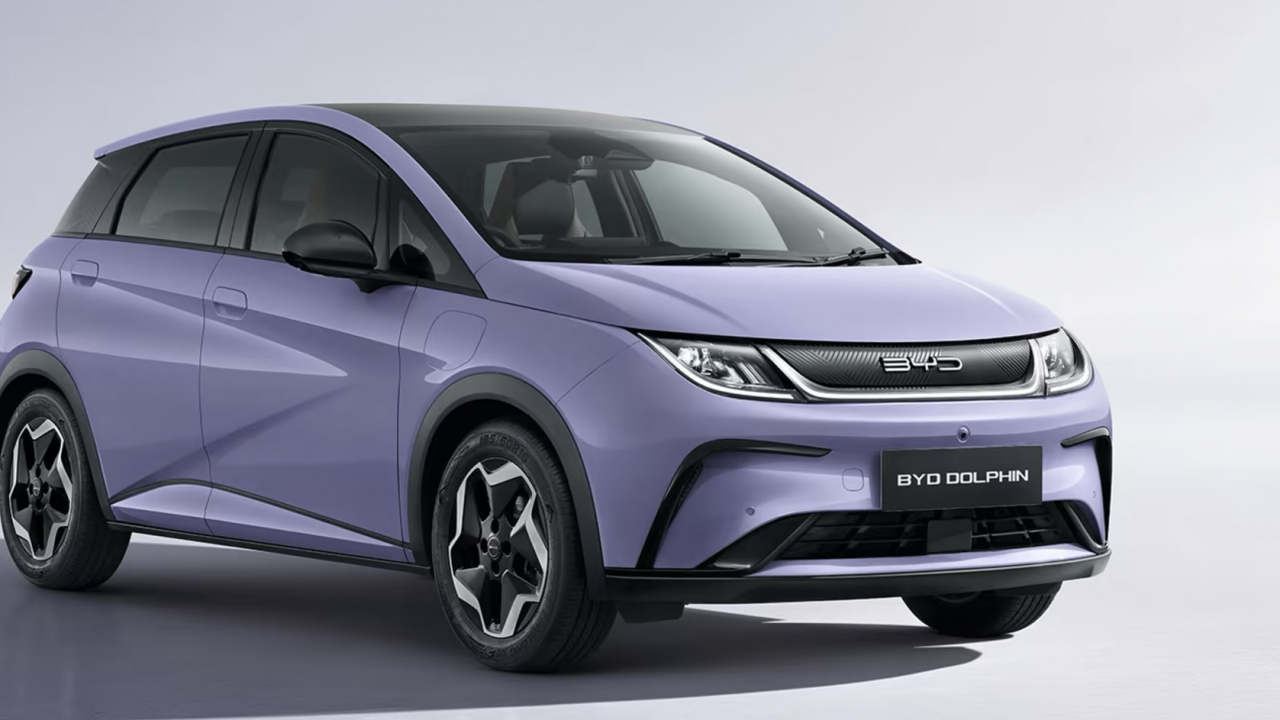[KH Explains] Will BYD redefine EV affordability in Korea?
By Moon Joon-hyunPublished : Feb. 20, 2024 - 15:45

Even those unfamiliar with the world's largest electric vehicle maker BYD Auto may have noticed their commercial electric buses that have been navigating city streets in Korea since 2017.
Now the Chinese automaker, known for its exceptional affordability, is reportedly entering the broader consumer Korean EV market in the latter half of this year by introducing the Dolphin hatchback, Atto 3 compact crossover, and Seal midsize sedan electric vehicles.
They are currently undergoing a performance evaluation under the Korea Environment Agency in a sign of their imminent launch, according to industry sources.
"We can't confirm the launch or specific models, but it’s true we are more actively considering the Korean market than before," said BYD Korea’s PR director Jung Hyun-seok.
Why is BYD entering Korea now?
In 2023, EV sales in South Korea slightly declined by 1.9 percent to 117,611 units, a significant change from the over 73 percent increase in 2022. Hyundai-Kia maintained its stronghold, capturing about 60 percent of the EV market. This raises questions about the potential for BYD to penetrate a market dominated by local giants.
BYD's Korean market entry appears driven by supply challenges rather than demand.
"The rapid expansion of China's EV sector has led to oversupply and underutilized production facilities, prompting the government to push for increased exports," said Hana Securities analyst Han Su-jin, who covers the Chinese automotive and battery sectors.
Can BYD shake up EV pricing in Korea?
BYD is anticipated to redefine what affordability means in Korea, a market where the leading automaker, Hyundai-Kia, has yet to venture into competitive pricing. The question now is, with the Korean EV market experiencing a slowdown, can BYD's aggressive pricing strategy inject new energy into the sector?
It might not immediately disrupt the market, at least for now.
"I expect BYD to gradually make its mark in Korea, starting with the Dolphin, the highly popular compact hatchback. If priced around 32.2 million won ($24,000), based on what we've seen in Japan, it has a good chance of targeting a niche market, for example, women seeking affordable, dependable city cars, as the Dolphin boasts a respectable range of 426 kilometers," said analyst Han.
"As for the pricier models, gaining the trust of Korean consumers towards a Chinese brand will take some time," she added.
Will BYD EVs be a real bargain?
BYD’s success hinges on its pricing. Analyst Han looks to Japan for potential price indicators, where the Dolphin and Atto 3 are sold for approximately 32.2 million won and 39.1 million won, respectively.
The Dolphin significantly undercuts competing models with similar ranges and performances like the Chevrolet Bolt EV and Hyundai's Kona Electric, which are priced at around 44.5 million won and 41 million won, respectively, offering a potential price advantage of nearly 10 million won in Korea.
Upcoming 2024 EV subsidies from the government, which penalize vehicles with less efficient batteries, could reduce this advantage by about 5.25 million won. However, BYD vehicles would still hold a price benefit of around 4.75 million won.
"Considering the prices in Japan were set before the current pricing war triggered by Tesla and Chinese carmakers, we might see even sharper pricing for BYD in Korea," said Han.
Are Korean carmakers prepared for a pricing war?
Domestic carmakers are already preparing to launch more affordable EVs in 2024. Among these, Kia's EV3, a compact crossover set to compete with BYD's Atto 3, is the most anticipated. With an expected starting price of $30,000 in the United States, the EV3 is directly positioned against the Atto 3. Benefiting from 2024’s revised government subsidies, the EV3 might even be cheaper than its BYD counterpart.
"In response, local EV makers might run occasional promotions or events. See, in China, constant price cuts haven't worked out -- they just made buyers wait for the next big discount," said Han.








![[Weekender] How DDP emerged as an icon of Seoul](http://res.heraldm.com/phpwas/restmb_idxmake.php?idx=644&simg=/content/image/2024/04/25/20240425050915_0.jpg&u=)
![[KH Explains] No more 'Michael' at Kakao Games](http://res.heraldm.com/phpwas/restmb_idxmake.php?idx=644&simg=/content/image/2024/04/28/20240428050183_0.jpg&u=20240428180321)









![[Herald Interview] Mistakes turn into blessings in street performance, director says](http://res.heraldm.com/phpwas/restmb_idxmake.php?idx=652&simg=/content/image/2024/04/28/20240428050150_0.jpg&u=20240428174656)
